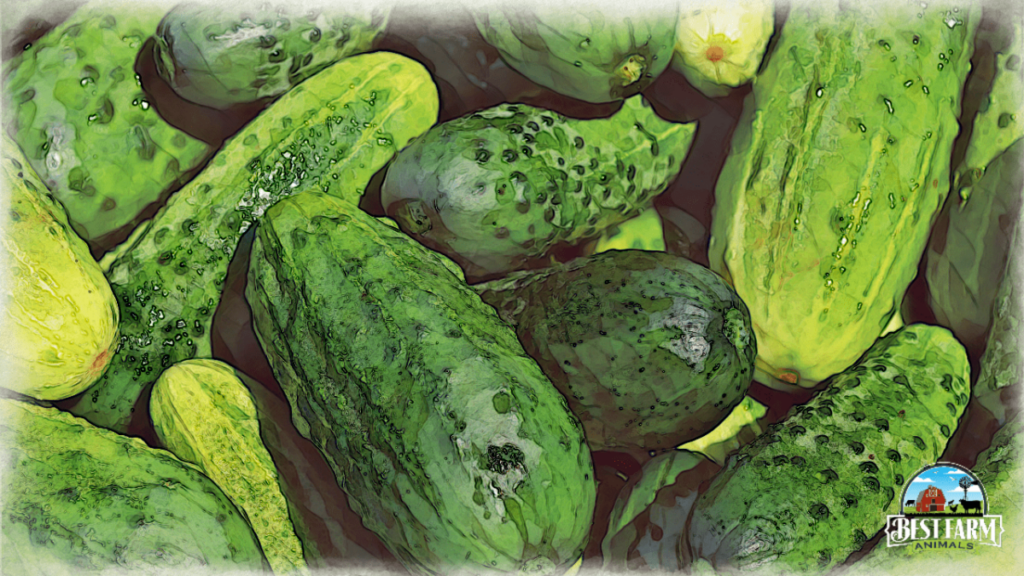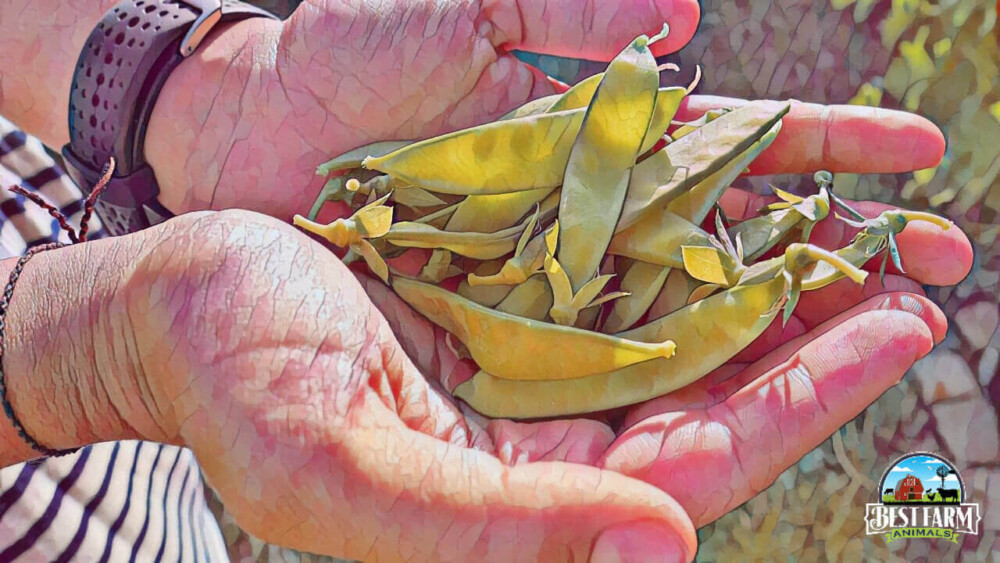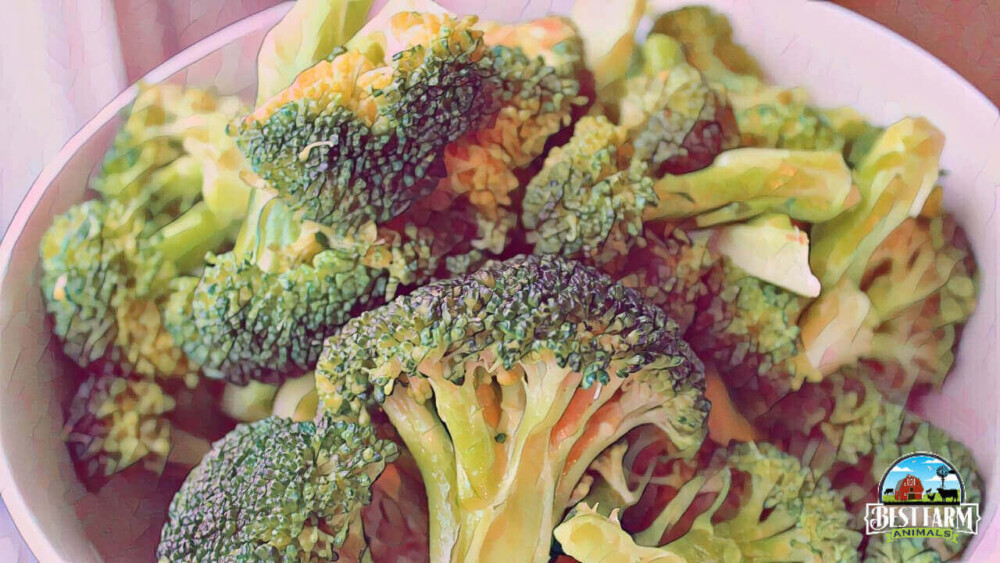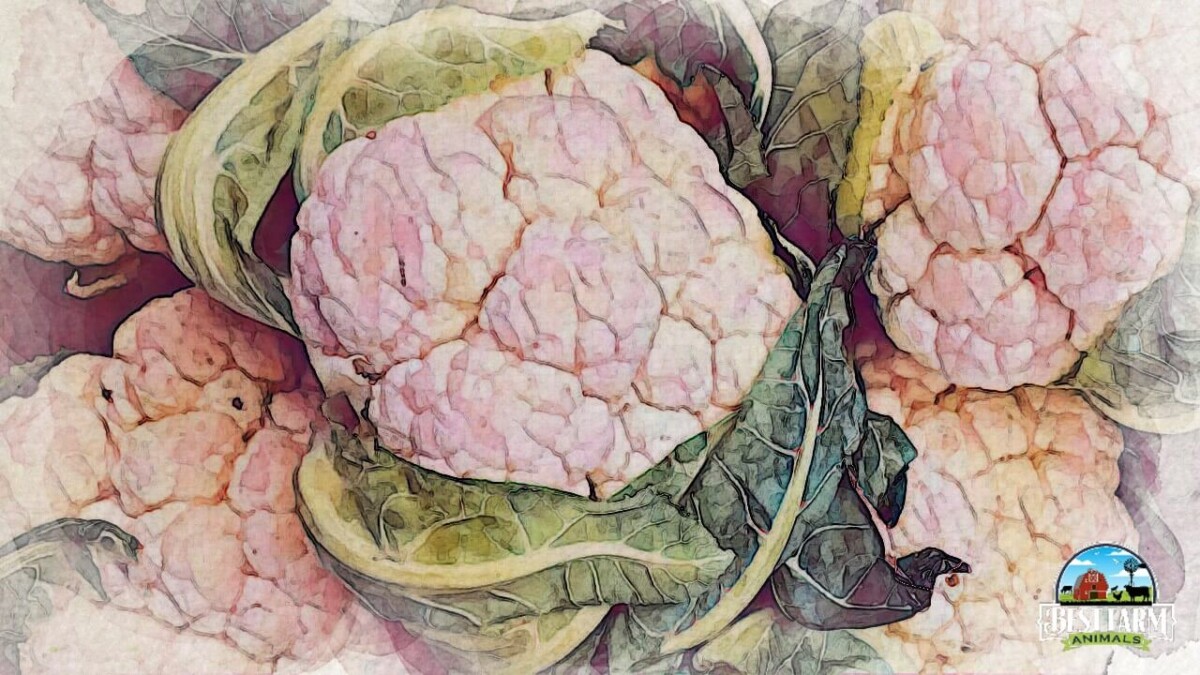After a long cold winter, I imagine that my pigs want fresh veggies as much as I do. I’m eager for the spring vegetables that crop up as the snow creaps away, but I wondered; can pigs eat all the spring produce. In this article- I’ll cover which spring vegetables pigs can eat.
Plus- be sure to check out our full guide on what vegetables pigs can and cannot eat.
Can Pigs Eat Asparagus?
Pigs can eat raw, cooked, or frozen asparagus safely.
Asparagus is healthy for pigs to eat and provide vitamins and nutrients that benefit pigs. But, not all pigs like the taste of asparagus. All varieties of asparagus (purple and green) are healthy for pigs. Feed young asparagus before it goes to seed or becomes too woody as it will be difficult for pigs to chew and digest. Pigs can eat raw, cooked, or frozen asparagus safely.
Mini Pigs can also eat asparagus, but not as a substitute for their regular food.
Asparagus doesn’t provide many calories, so don’t substitute your pig’s regular feed with asparagus, or you may find your pig losing weight. Asparagus contains Vitamins K, C, A, E, phosphorus, folate, and potassium. It also contains iron, zinc, and other nutrients. Pigs can eat asparagus, both raw, cooked, or frozen.
Asparagus isn’t an exceptional source of protein, but it contains healthy antioxidants, minerals, and vitamins. That doesn’t necessarily mean that your pig will eat it, but if it does like the taste, it’s a healthy treat and source of nutrition.
Can Pigs Eat Brussell Sprouts?
Mini pigs and pigs can eat Brussel sprouts both raw, cooked, and frozen. The buds, leaves, and stems are all edible for pigs, but the stems are very fibrous and may need to be chopped or cooked. Brussel sprouts pack a high amount of Vitamin C, K, Folate, Calcium, and Iron. The high levels of Vitamin C help boost a pig’s immune system.
Brussell sprouts can be fed to pigs as treats or mixed in with their regular feed.
Can Pigs Eat Celery?
Celery is nutritious and healthy for both pigs and mini pigs to eat. The entire part of the celery plant, including the stalk, leaves, and roots, is healthy to pigs. Pigs can eat celery raw, cooked, or frozen. Celery contains many vitamins and minerals that are beneficial for pigs. Celery provides a good source of Vitamin A, C, K, potassium, and folate. It’s also a good source of antioxidants and water.
Pigs will happily eat every part of the celery plant, including the leaves and roots. On the downside, it offers little fat or protein, so it is only suitable for pigs as part of a balanced diet.
Cucumbers: Nutritionally Void, Great Pig Hydration
Pigs can eat cucumbers, including the entire cucumber plant. The cucumber skins, sprouts, leaves, vines, and flowers are all edible for pigs, which means they can finish off your spent garden plants. Cucumbers provide Vitamins C and K, Magnesium, and fiber, but are low in calories. Spitting cucumbers, a novelty plant from the medditerranian is poisonous and all parts of the plant should be avoided.
Cucumbers contain high amounts of water and can be a great way to keep your pigs hydrated, but they do not offer enough nutrients or calories to keep your pigs healthy if fed as a large percentage of their diet. Mini pigs and pot-bellied pigs can also eat cucumbers and the plant.

Can Pigs Eat Peas?
Pigs can eat fresh peas raw, cooked, or frozen. They can eat all parts of the pea plant including the leaves, flowers, and vines. Dried peas, aka field peas, should not be fed to pigs. Canned peas should be avoided because of the high salt content. Fresh peas, including sugar snap peas, English peas, and snow peas are edible and provide great nutrients for pigs.
English peas are shelled and the husks are very fibrous, but even the husks are still edible for pigs to eat. Snow peas, or Chinese pea pods are usually eaten before the peas are ripe because of the long time they take for peas to flesh out. Sugar snap peas are a cross between English and Chinese peas. All of these main garden varieties are edible to all breeds of pigs, including potbellied and mini pigs. Peas contain Vitamins A, K, C and Thiamine. They are low in calories and are best served combined with other foods higher in calories.

Broccoli is a Superfood for Pigs
Can pigs eat broccoli? Pigs and mini pigs can eat raw or cooked broccoli. Broccoli stems, florets, and leaves are edible to pigs. Never feed your pigs broccoli seeds. If the florets have gone to seed, separate it before letting your pigs eat the rest of the plant. Frozen broccoli is also healthy for pigs. Broccoli contains antioxidants and the vitamins A, C, and K, making it a superfood for pigs.
Pigs love the crunchy freshness of the broccoli’s leaves and stems and will happily eat them either raw or cooked. Broccoli is a superfood for pigs, as it’s nutritious, high in protein, and bursting with vitamins and nutrients. The stems and seeds of the broccoli plant are potentially toxic to pigs.
Raw broccoli is often more appealing to pigs than some humans (especially me!) I enjoy letting my pigs finish off my garden at the end of the season, including my broccoli plants. I just cut off the mature flowers if I have any florets that I missed.

Pigs can Eat most parts of the Broccoli Plant
Humans tend to restrict themselves to eating the head of the broccoli plant and cutting off the stalk. Pigs are more intelligent than us because they’ll eat the nutritious stems just as enthusiastically as the crown.
At this point, the pig’s love affair with broccoli ends. A broccoli plant’s seeds and roots contain polyphenols and glucosinolates. These compounds aren’t entirely beneficial to the pig, with one study finding that pigs fed 600g of raw broccoli a day sustained 27% more DNA damage to their colonocytes than those on a grain-only diet.
Coloncytes play a critical role in the pig’s digestion, ability to absorb nutrients, and offer protection against microbial infections.
Strangely enough, frozen broccoli “had no significant effect,” so if you’re planning on feeding your pigs a lot of broccoli, you might want to blanch it first and then freeze it. On a hot summer’s day, your pig might want nothing better than a bundle of frozen broccoli!
Potbellied Pigs Love all Varieties of Broccoli
There are approximately 15 different types of potbellied pigs, all of which can safely eat the leaves and stems of broccoli.
You could even try out different varieties of broccoli, seeing if your pigs prefer the nutty flavor of the Romanesco or the more peppery taste of the Purple Sprouting variety.
Cauliflower Has Some Nutritional Benefits for Pigs
Pigs can eat raw, cooked, or fermented cauliflower in moderation. Cauliflower is rich in fiber and contains high levels of vitamin C and K. No research has been done into the effect of too much cauliflower on a pig’s digestive system. Still, it’s possible that eating cauliflower in large quantities could cause bloat and other gastrointestinal issues.
Most pigs don’t like it as well as other vegetables. Cauliflower can be fed to pigs in moderation but should not be a significant percentage of a pig’s diet. Raw or cooked cauliflower leaves, florets, and stems are all good for pigs. Cauliflower provides a little of almost every essential nutrient people need and many of the important ones pigs need. It has Vitamin K, B6, C, calcium, folate, and other nutrients.
Theoretically, as cauliflower contains glucosinolates, it could cause similar problems to those associated with broccoli. As a result, it’s best only to feed your pig the head and leaves of the cauliflower, avoiding the roots and seeds.

Fermented Cauliflower Has Health Benefits for Young Pigs
Research indicates that fermented cauliflower residue has positive health benefits for weanling and young pigs.
A study performed in China last year found that including fermented cauliflower in the diet of nursery pigs improved growth performance, decreased the occurrence of diarrhea, and enhanced immune function.
Fermenting cauliflower is a simple process that takes a few days to complete. It reduces the vegetable’s goitrogen content, making it safer for the pig to consume. It also introduces “live probiotics and enzymes” into your pig’s diet.
I would only recommend fermenting cauliflower if, for some reason, you have an excess of the vegetable. In general, cauliflower doesn’t contain enough health benefits to justify the time and effort needed to complete the fermentation process.
My Most Used Pig Supplies
This list contains affiliate products. Affiliate products do not cost more but helps to support BestFarmAnimals and our goal to provide farm animal owners with accurate and helpful information.
Purina Pig Chow will last well (or Mazuri is popular, but I haven’t tried it), and the stainless steel non-skid bowls that will help keep the mess down.
A pig blanket to keep her warm. This one also has bright colors and helps to provide rooting without the destruction.
Pig Harness for walking and handling your pig. There are a lot to choose from, but this one is pretty easy to use. If you want one that has a separate leash, this looks like a good one.
A large crate for keeping her safe in your house at night and when you leave the house. This is essential. You’ll also want a litterbox, and I like mine with a lid for nighttime. Pine shavings are best, and you may be able to find them in larger quantities locally.
When you have accidents, Odoban will help eliminate odors. When you are potty training, these floor pads work great for keeping your house clean while training her to go in certain places.
You’ll also want an outdoor house to keep her warm when she gets outside time, an essential part of her development.
Dewormer- Ivermectin is the primary dewormer I use, although I do rotate with a non-ivermect ingredient once so that the worms don’t get immune to it.

